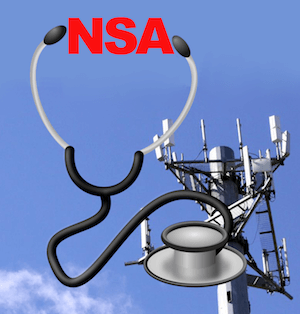The Third-Party Doctrine:
Fading Fourth Amendment Protection in a Modern, Technologically Advanced Society

From the NSA leaks made by Edward Snowden to the FBI’s demand for Apple to provide backdoor access to the San Bernardino shooter’s IPhone, the issues of government surveillance and digital privacy have been divisive and hotly-contested as of late. Apart from issues involving national security, there is one question that many current criminal defense attorneys may face in everyday practice: Is the government required to obtain a warrant for an individual’s cellphone records to track the defendant’s past locations when conducting a criminal investigation? Unfortunately, and perhaps not surprisingly, the answer is no in some jurisdictions. According to the recent majority opinion in United States v. Graham released by the Fourth Circuit Court of Appeals, cell phone GPS records are not protected under the Fourth Amendment because of a concept known as the third-party doctrine. United States v. Graham, No. 12-4659, No. 12-4825 (4th Cir. May 31, 2016).
The Fourth Amendment provides that “the right of the people to be secure in their persons, houses, papers, and effects, against unreasonable searched and seizures, shall not be violated” and, generally speaking, a search under the Fourth occurs when the government violates a person’s reasonable expectation of privacy. Id. at *2 (citing U.S. Const. amend. IV.). The third-party doctrine has its foundation in three separate Supreme Court cases between 1966 and 1979, most notably in the case of Smith v. Maryland. Id. at *2. As stated by the U.S. Supreme Court in those cases, the doctrine provides that an individual cannot claim a legitimate expectation of privacy for information that the individual voluntarily conveyed to a third party and therefore the information is not subject to Fourth Amendment protection. Id.
Cell-Site Location Information

In Graham, the Government used cell-site location information (CSLI) – records that identify which towers the cell company used to route the defendant’s calls – during an investigation for robbery. Id. at *1. To be clear, the Government did not directly track the defendant, but rather gathered the CSLI from a third-party, Sprint/Nextel Communications, in order to track the defendant’s past movements. Id. at *10. (For a recent Supreme Court decision on direct GPS tracking, see United States v. Jones, No. 10–1259 (2012).). The Fourth Circuit determined that when a person enters an arrangement with a service provider and subsequently uses a cell phone, they are voluntarily conveying information necessary for the phone to work and, therefore, the information sent to the service provider is subject to the third-party doctrine. Id. at *5-6. When using a phone, the court reasoned, a person assumes the risk that the cell provider will collect CSLI data and that the government may ultimately receive it. Id.
Stored Communications Act

However, the government does not have unfettered access to cell service provider records. The Government is required to compel records by filing a motion under § 2703(d) of the Stored Communications Act. Id. at *2. § 2703(d) requires that the government have probable cause for a warrant or reasonable suspicion in order to have access to the records. Id. at *13 (citation omitted). However, a search under the Fourth Amendment requires the government to have probable cause in order to have a warrant. U.S. Const. Amend. IV. This is an extremely crucial distinction because the burden of proof to compel the information is currently much lower than if CSLI was considered a search under the Fourth.
For those of us who enjoy our privacy and Fourth Amendment protections, the third-party doctrine is an extremely alarming precedent. In the 1979 seminal case of Smith, the Supreme Court found the use of a pen register was not a search within the meaning of the Fourth Amendment and established the third-party doctrine. Smith v. Maryland, No. 78-5374 (1979). A pen register collects one piece of information: telephone numbers typed into a person’s telephone. Id. at 741. The use of the doctrine in Smith is a huge contrast to how it is used today. The main argument by the Fourth Circuit was that cell phone users volunteer their information to the third-party service provider. Graham, 2016 WL 3068018 at *6. However, in today’s world using cellphone records to track a person’s GPS locations reveal private details about an individual’s life by analyzing their movements. For example, trips to a psychiatrist, abortion clinic, church, defense attorney, or any other seemingly private bit of information can be seen on the GPS records and seized by the government without a warrant. Jones, 132 S.Ct. 945 at 955. It seems unlikely that most people would openly “volunteer” this information.
Extending to Internet Activity

Moreover, the third-party doctrine has far reaching implications besides just GPS location for cell phones. The Ninth Circuit goes so far as to say that the doctrine applies to any information that relies on third party equipment in order to engage in communication. Graham, 2016 WL 3068018 at *7. Email, Internet subscriber records, Internet Protocol (IP) addresses, banking records, and so on are just a few examples of where the doctrine applies. Id. As technology continues to progress, it is safe to say Fourth Amendment protections will continue to slowly be chipped away by a doctrine created more than three decades ago.
The Supreme Court has not addressed the doctrine since the rise of internet and mobile technology, but several other federal circuit courts have come to the same conclusion as the Fourth Circuit ultimately did in Graham. For privacy advocates, there was a glimmer of hope that the Supreme Court would have to address the third-party doctrine issue because a panel of the Fourth Circuit found the CSLI use in Graham unconstitutional, thereby creating a split in the circuit courts. However, the Fourth Circuit reviewed the case en banc and reversed course, finding the search did not violate the constitution because of the doctrine.
Although, the issue is still unsettled SCOTUS will likely address it in the near future. In a 2012 opinion, Supreme Court Justice Sotomayor suggested that it may be time for the Supreme Court to reconsider the third-party doctrine and listed the proliferation of technology as a critical issue. Jones. Just in April of this year, Senator Ron Wyden discussed how legislation needs to address the doctrine. He stated that the law needs to be re-written because when people enter into a private business relationship, they do not expect that information to be public.